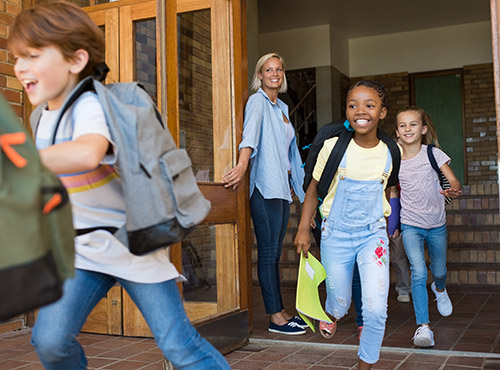
The upcoming holidays: they are touted as “the most wonderful time of the year.”
Now, imagine spending those days before the holidays with dozens of students who are overexcited, overstimulated and overtired. This wonderful time of the year can easily turn into a nightmare.
Many teachers can attest that the weeks before a winter break can be the hardest. If you have ever been a classroom teacher, you know the following are likely to occur:
1. Students will forget expectations.
2. Students will have difficulty following instructions.
3. Students will forget how to get the teacher’s attention.
4. Students will find it hard to stay focused.
5. Students will have difficulty listening.
However, you can maintain that “most wonderful time of the year” with your students if you keep these three things in mind:
TEACH, PRAISE, TEACH!
TEACH!
Just because you have already taught expectations, you may find that it is worthwhile to revisit skills that your students struggle with at this time of the year. Basic skills such as Following Instructions, Getting the Teacher’s Attention, Staying on Task, and Listening are just a few of the prosocial behaviors your students may need reminding of. Get ahead of misbehavior by being proactive! Take the time to teach/reteach before these behaviors continue! The more often we teach proactively, the better our students are prepared when situations arise. Whatever behaviors your students may be struggling with, remember to assess which social skill may be the best to teach a more appropriate skill.
Teach the skill by letting your students know the name of the skill, the specific behavioral steps to performing the skill, and a reason why it is important to use the skill. It is also essential for your students to practice using the skill. After all, practice helps students become more proficient in using social skills. You can find sample lesson plans on social skills on our website. Another great resource you can find at www.boystownpress.org is the book Teaching Social Skills to Youth. This book is an easy-to-follow guide to teaching 183 basic to complex social skills.
PRAISE!
Once you have taught or retaught a social skill, the next step is to reinforce it through praise. Students love it when adults notice when they have done something right! Because it may be more difficult for students to choose appropriate behaviors when their minds are filled with thoughts of upcoming holidays or vacations, it is vital for adults to notice positive behaviors more often.
Praise can come in many forms. A “great job!” or a “super!” are always nice to hear. However, those words may not provide enough information for the child to know exactly what it is that he or she did. Adding a description of the specific behavior helps students know exactly what to replicate in the future. Some examples would be “Magnificent job listening!” or “Way to go! You stayed on task and got all your work finished.”
Adding a reason to the praise can help students have an even better understanding of why a social skill is important to use. It may sound like this “I’m impressed with how you followed instructions. When you follow instructions right away, you are more likely to get your work finished and not have to take it home.” Whatever type of praise you use, remember, the more we find opportunities to let students know when they get it right, the easier correcting them can be when they get it wrong.
TEACH!
Let’s face it. We all make mistakes. Making mistakes help us to learn. Just as we teach students more appropriate behavioral choices proactively, our students can be more successful when taught better choices for appropriate behaviors during correction. When a student makes a behavioral mistake, it is important to address the mistake by teaching the student what he could have done instead. This is done in the same predictable structure as we taught proactively.
First, it is important to let the student know what he did wrong. Then it is important to teach him a better choice by letting him know what skill would have worked better, what the skill looks and sounds like, and why it is important to use the skill. Just as we do when we proactively teach a child, it is vitally important to provide him an opportunity to practice this alternative choice. Students can quickly learn the words we use when we teach them prosocial behaviors, but that does not always equate to the ability to actually perform a more appropriate choice. Having a student physically practice an alternate behavior helps the student to deepen learning and gives us an opportunity to see if the child truly knows what to do. The more often we can teach within the context of correction, the more likely the student has the background knowledge to pull from in future situations.
Let’s hope that this time before the holidays and your next break can be fun and focused for your students. If behaviors get challenging, remember to TEACH, PRAISE, and TEACH!
If you have additional questions, please ask one of our experts!
